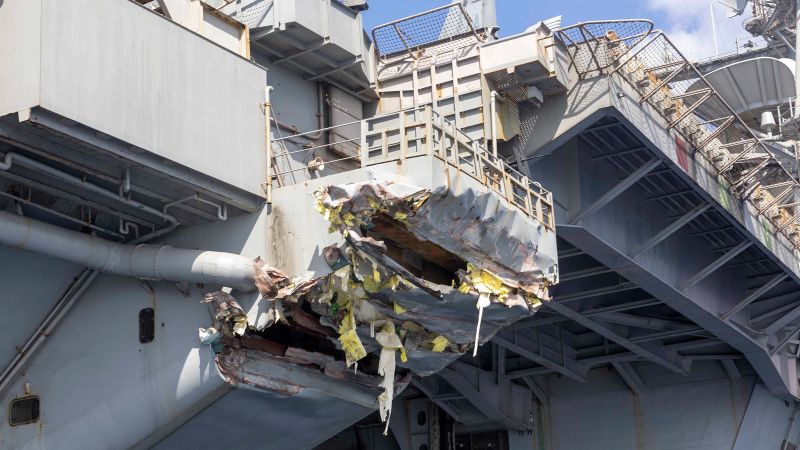Carrier Command Shakeup: USS Carrier Leadership Axed After Maritime Mishap

In a decisive move, the US Navy has removed the commanding officer of an aircraft carrier following a maritime incident in the Mediterranean Sea. The vessel, which was involved in a collision near the critical Suez Canal entrance, has prompted immediate leadership changes.
The Navy's swift action underscores its commitment to maritime safety and operational excellence. By relieving the carrier's commander, military leadership is sending a clear message about accountability and the high standards expected of naval personnel.
The collision, which occurred in a strategically important maritime corridor, raised immediate concerns about navigation protocols and vessel management. While details of the incident remain under investigation, the Navy's prompt response indicates a thorough and transparent approach to addressing potential navigational errors.
This incident highlights the complex challenges faced by naval commanders in maintaining safe passage through busy and strategically sensitive maritime regions. The Suez Canal, a crucial global shipping route, demands exceptional navigational skill and situational awareness from maritime professionals.
The Navy's decision to replace the carrier's commander reflects its zero-tolerance policy for operational mishaps that could compromise maritime safety or national security interests.

